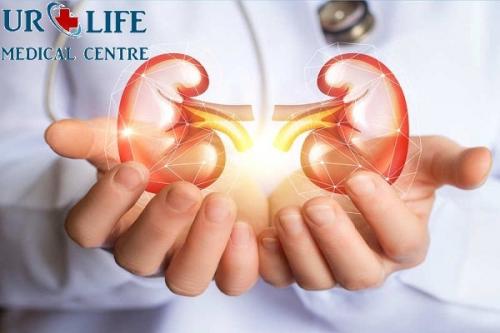What is Extracorporeal Shockwave Lithotripsy?

ESWL is a revolutionary technique that emerged in early 1980’s and is a boon for the patients suffering from kidney stones.
About Extracorporeal Shockwave Lithotripsy
It is a non-invasive treatment for the ones having kidney stones. The method requires no incision and internal telescopic devices, thus no pain, bleeding, and stitches. It is done with help of a machine called as lithotripter, the machine administers a series of shockwaves on the kidney stones with help of x-rays. These soundwaves reach the stones penetrating the skin and tissues and break down the stone in smaller fragments. The treatment is done for several weeks depending on the size of stone, the broken fragments pass easily through the ureter and urinary bladder through urine. The procedure for a single sitting is about an hour, the patient is given local anaesthesia during the treatment, sometimes the surgeon may place a stent if the stone is large that keeps the ureter open, and this helps the stone pieces to pass down without blocking the ureter.
What To Expect After The Treatment?
Lithotripsy treatment in Delhi is an outpatient procedure and you may go home after the treatment is over, you don’t have to spend even a single night in the hospital. But if the stone is large you may have to visit hospital for 2-3 sittings. After the treatment is over the fragments pass through the urinary tract through urine, this may take few days and may also cause mild pain.
Reasons Why It Is Done?
The treatment is for those who are having kidney stones and are blocking urine flow. The treatment is best for kidney stones that are present in kidney itself or in the part of the ureter that is very close to kidney. The treatment is not used for patients who are suffering from:
- A urinary tract infection.
- Have bleeding disorder.
- If you are pregnant.
- Have kidneys with abnormal structure and function.
Recovery
Generally, patients return to their normal routine activities in a single day, this also depends on the size of the stone treated, but if you have received treatment for a larger stone it may take around a week to return to normal activities. If you feel pain your doctor can prescribe pain killers and antibiotics too to avoid any infection. The doctor may advice you to drink lots of water to prevent any infection and bleeding.
Side-Effects
Some risks associated with the treatment are:
- Pain and discomfort.
- Some amount of blood in urine.
- Bruising or broken vessels under skin after treatment is over.
Advertise on APSense
This advertising space is available.
Post Your Ad Here
Post Your Ad Here

Comments